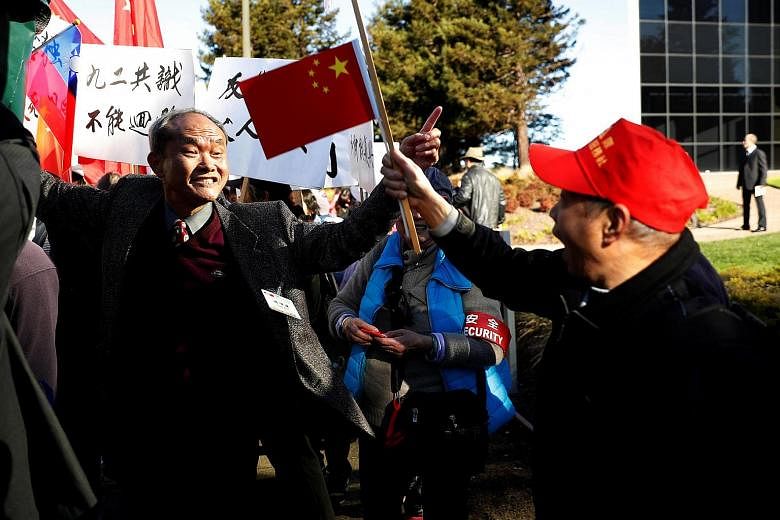In its editorial on Feb 22, The China Post questions claims by Stephen Young, the former director of the American Institute in Taiwan (AIT), that the move to station US marines at the AIT is a "symbolic" expression of America's commitment to Taiwan. AIT serves as Washington's de facto embassy on the island.
Dr Stephen Young, a former director of the Taipei office of the American Institute in Taiwan (AIT), said last Wednesday the United States would station a Marine Guard at the new AIT office compound in Taipei scheduled to open later this year. He revealed the posting of leathernecks in a speech at a conference of the Global Taiwan Institute, a think tank in Washington, where President Donald Trump's Taiwan policy was discussed.
Young, who retired as US consul general after serving in Taiwan for three years, said he pushed strongly for the US to have a security detachment protect the American mission in Taipei. While he headed the AIT office, he made sure there would be a Marine house, which he described as a social centre of a diplomatic corps anywhere and a "symbolic expression" of the US commitment to its friends in Taiwan. Is it?
It's symbolic all right. Uncle Sam's commitment to his friends in Taiwan? Hardly. Note that President Trump is all set to use Taiwan as a bargaining chip in a give-and-take negotiation with his Chinese counterpart Xi Jinping to keep at least the status quo of Sino-American relations.
US Secretary of State Rex Tillerson met with Chinese Foreign Minister Wang Yi at Bonn last Friday to make arrangements for the first Trump-Xi summit talks to alleviate tensions arising from Washington's proposed review of its "one China" policy. They had a telephone talk on Feb 9, during which Trump agreed to honour Washington's close-to-four-decade-old "one China" policy and to meet his Chinese opposite number in each other's countries.
US Marines are posted at 148 American overseas missions around the world to protect the diplomatic facilities and the personnel stationed there. They are charged, in addition, with preventing the compromise of national security information. A Marine Guard was at the American Embassy in Taipei, when a mob occupied its compound and reportedly seized classified documents on May 24, 1957. It was the Taipei police who, with the support of a military garrison, put down the anti-American riot that left one dead and more than 10 others injured.
Did Dr Young want to prevent a repetition of the May 24 Incident when he was pushing for the stationing of a Marine Guard at the new office compound, which has yet to be completed? No mobs will attack the new compound. Nor can a platoon of leathernecks protect its personnel and prevent the compromise of Uncle Sam's national security information.
Perhaps that's the reason why Young called the Marine house a symbolic expression. He wants it to be a social centre of Taipei's diplomatic corps, but it runs counter to the very purpose of deploying a Marine contingent in the first place. Then, what's the purpose of his divulging it now? Maybe, he wished to catch the attention of sensationalist Taiwanese media in his lonely retirement.
Of course, the AIT did not comment on what its former Taipei office representative said in Washington, though its new compound was described out of diplomatic courtesy, as "a demonstration of our ongoing and continuously deepening commitment to Taiwan."
Media in Taipei have reported that the posting of a Marine Guard at the de facto American embassy in Taipei would be an indication of warming Taiwan-US relations, albeit it could worsen cross-strait tensions since President Tsai Ing-wen took office on May 20 last year.
They are wrong because relations between Taiwan and the US won't get any warmer by the presence of leathernecks at the AIT compound in suburban Taipei. They are right in predicting the bad relations between Taipei and Beijing will get worse if American Marines are stationed here.

